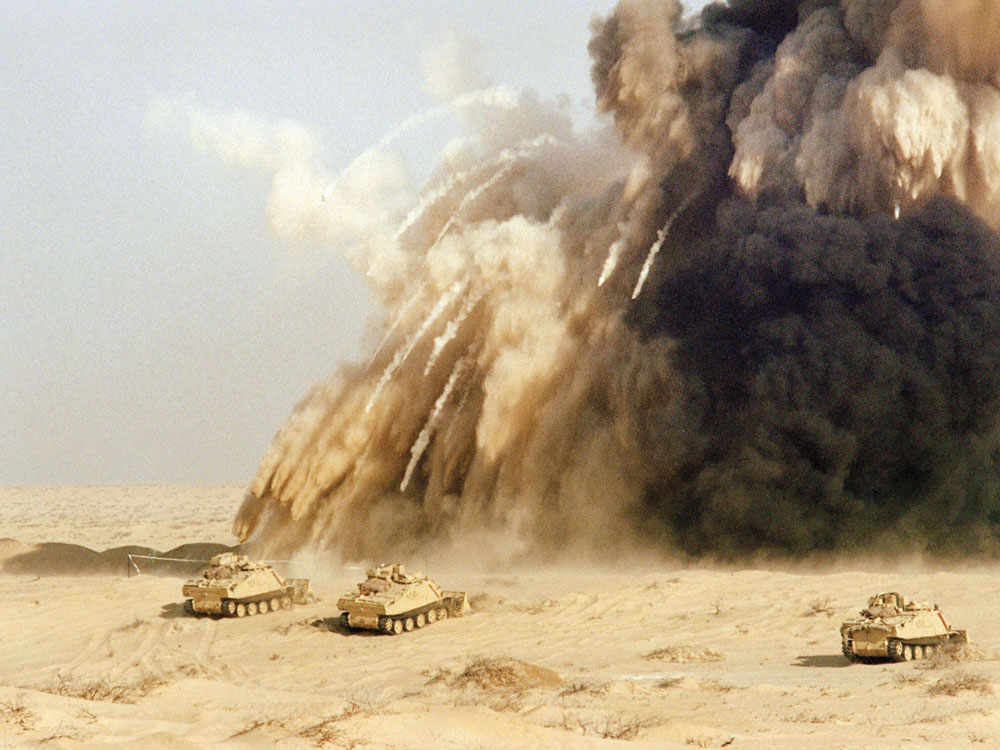| Expats survived Iraq's invasion of Kuwait, tell accounts of war |
| | Sun, 01 Aug 2010 |
| |  |
| |
KUWAIT: The unexpected and sudden attack by Iraq on Kuwait put the lives of many expatriates at risk. Many fled and escaped so they would not have to suffer the consequences of the war and yet many remained and survived to tell their stories. Al Watan Daily spoke to three different expatriates who gave different insights and recounted their experiences during the Iraqi invasion of Kuwait. Below is part one of a two-part series:
Jerry Reyes arrived in Kuwait in 1987 and worked for an American firm Safeway in Farwaniya. Reyes was fortunate to survive the Iraqi invasion of Kuwait. He told his story with a tinge of grief as until today he cannot forget what he witnessed and went through during the war.
"There were rumors that Iraq would invade Kuwait but we had no idea as to when and where the attacks would happen. All we could do was to wait for the news and one morning when we least expected it, we were awakened by rumbling sound of tanks. We went down to see what was happening and all we could see were roads completely destroyed by tanks and Iraqi soldiers standing everywhere," Reyes explained.
Reyes and his colleagues reported to work and the store's American and Palestinian managers gave instructed the staff to work half day. They gave permission to take necessary food from the store for them to use.
"We brought home frozen and canned food every day, until we had sufficient to last during the war, which we thought would last a week," Reyes added.
Reyes pointed out that the store allowed shoppers the option to pay or not for what they had shopped for and the Iraqi soldiers were inside the premises to oversee the whole operation, until after a week, when violence and abuse began and Safeway was burned to ashes.
Reyes recalled Iraqi soldiers barging into their company accommodation and inspecting everyone.
He said, "The soldiers took anything we wore such as jewelry and clothes."
"They were kind to Asian nationals but they closely monitored American, British and Kuwaiti nationals. They allowed us to go around freely and spoke to the entire day. What terrified our female colleagues were the screams for help of women being raped and sexually abused each night by the soldiers. We had to cut shorter the hair of our colleagues and make them wear loose jeans and caps to hide their faces and body, yet these tactics did not work and numerous women reported they were raped," Reyes recalled.
Reyes said that he and his colleagues had to visit his embassy daily to find out if their names were on the list to travel to borders of Saudi Arabia, Jordan and Iraq, where they could get into flights to return to their native countries. Reyes and his colleagues finally decided to travel on available buses to Iraq and landed on the "neutral zone" where they were housed in tents and had to depend on passing trucks for food.
"We spent most of the time on the ground during the exchange of prisoners between Kuwait and Iraq because of the heavy exchange of missile attacks. We saw women and men clinging to each other in tears, hoping the war would come to an end. After few days, we headed off to Jordan, where we were taken by our own nationals to their homes until we finally made it back home," Reyes recalled.
"I can never forget the burned bodies and bloodied corpses lying in the streets, ransacked and looted houses, burned shops and my American manager who was killed in Saudi Arabia, while attempting to seek refuge," concluded Reyes.
|